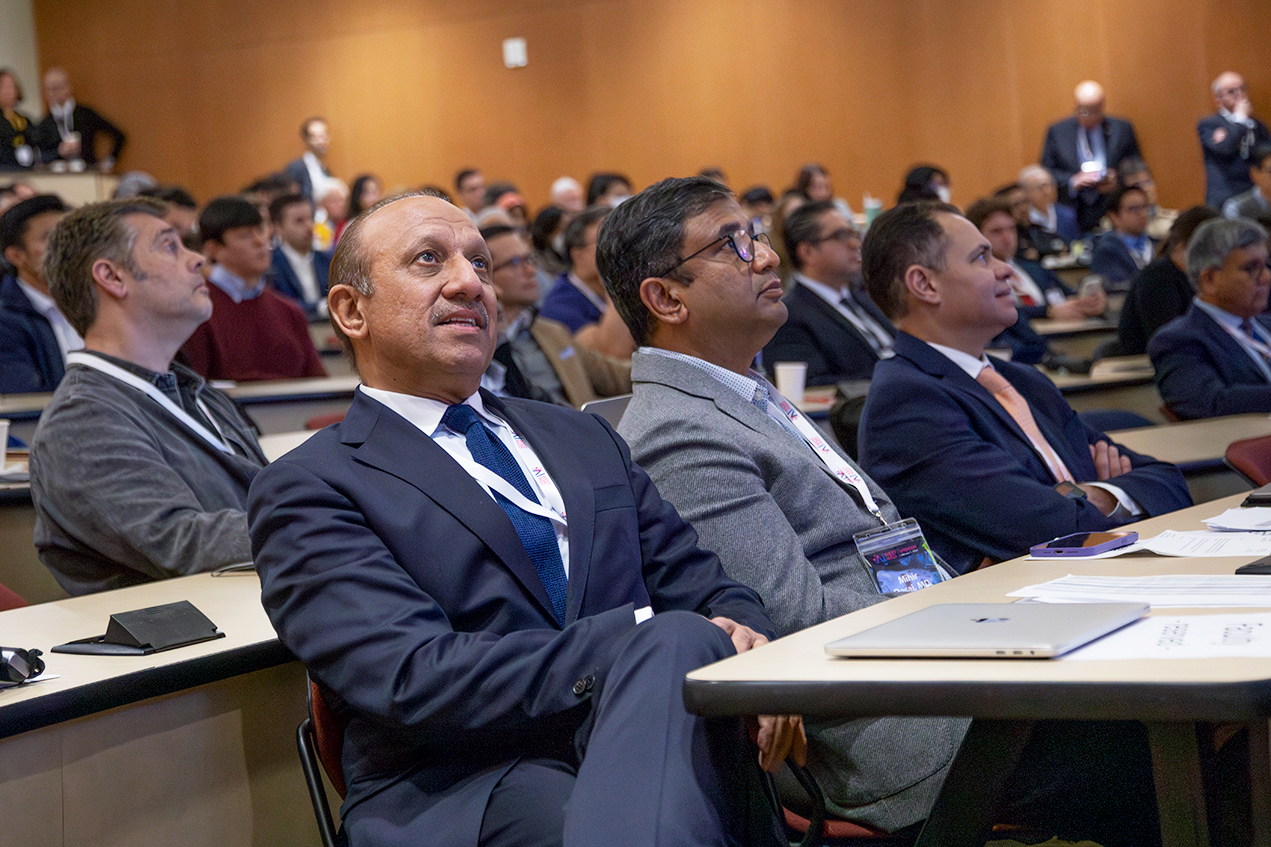The first annual AI West Med Symposium, established by physicians and scientists from USC Urology, part of Keck Medicine of USC, as well as from the Keck School of Medicine of USC, discussed how artificial intelligence is changing numerous health care specialties, improving diagnostic accuracy and innovating treatments.
The event, held Feb. 1 at the USC Health Sciences Campus, featured 31 leading faculty from 18 institutions, including USC. Experts from other medical centers, academic institutions, and health care corporations participated.
Speakers outlined currently viable AI tools and specific applications in specialties as diverse as surgical robotics, radiology, pathology, cardiology, neurosciences, ophthalmology and urology.
“AI is an inescapable part of the future of health care,” said symposium director Inderbir Gill, MD, founding executive director of USC Urology and distinguished professor and chair of the Catherine and Joseph Aresty Department of Urology at the Keck School. “AI West Med is more than just a conference; it is our commitment to help transform digital health care — not to replace physicians but to empower and enhance them.”
According to event organizers, the symposium attracted over 220 attendees — “with standing room only,” Gill said — and received such positive feedback that the directors have already scheduled next year’s meeting for Feb. 7-8, 2025.
“Our AI West Med Symposium was among the first of such conferences in the country,” said symposium co-director Giovanni Cacciamani, MD, director of the USC Urology AI Center and associate professor of research urology at Keck School. “It was a pleasure to help create and host this event during which not only the attendees but also the faculty learned a lot.”
Other event co-directors included Andre Abreu, MD, Mitchell Goldenberg, MBBS, PhD, and Rene Sotelo, MD, all faculty members of the Aresty Department of Urology.
Improving diagnostics
At the symposium, speakers discussed how AI is yielding faster and more accurate diagnostic processes in diverse fields. These experts included Keck Medicine physician-scientists, AI engineers from the USC Viterbi School of Engineering, the editor-in-chief of The Lancet Digital Health, Google and Microsoft scientists and speakers from 18 distinguished U.S. and international institutions.
In the field of pathology, for instance, speakers explained how AI is playing a transformative role in interpreting histological data after specimens are microscopically examined for signs of disease. Panelists also discussed how traditional pathology methods are now integrating AI, creating hybrid diagnostic systems. This includes the use of AI-enhanced computer vision to improve screening.
Abreu described research that is now underway to determine whether AI could one day enable virtual prostate biopsies, reducing the need for some patients to undergo traditional biopsies.
Advancing treatment
Speakers explained how AI is pushing the envelope on procedures. For instance, AI-guided assistance is playing a larger role in surgery, transforming the surgical workflow as well as improving post-operative care.
More accurate, AI-driven diagnoses are also enhancing digital health interventions and helping shape personalized and scalable health care solutions.
Refining patient management
Another panel identified the potential of AI and machine learning to streamline and automate outpatient clinical documentation, integrate disparate data sources, improve data accuracy and ultimately reduce administrative burden on health care providers — all yielding better decision-making for patient care.
These efforts to integrate AI will improve how providers and health care systems communicate with patients and personalize their treatment recommendations, the speakers said.
AI’s potential, today and tomorrow
Overall, the symposium emphasized AI’s growing permeation of health care — and the need for providers to know what to expect and how to maximize its potential.
“AI will help us push the boundaries of what’s possible in medicine, so let’s engage and learn together,” Gill concluded.
For more information about the event and a complete list of sessions, click here.
— Jennifer Grebow


